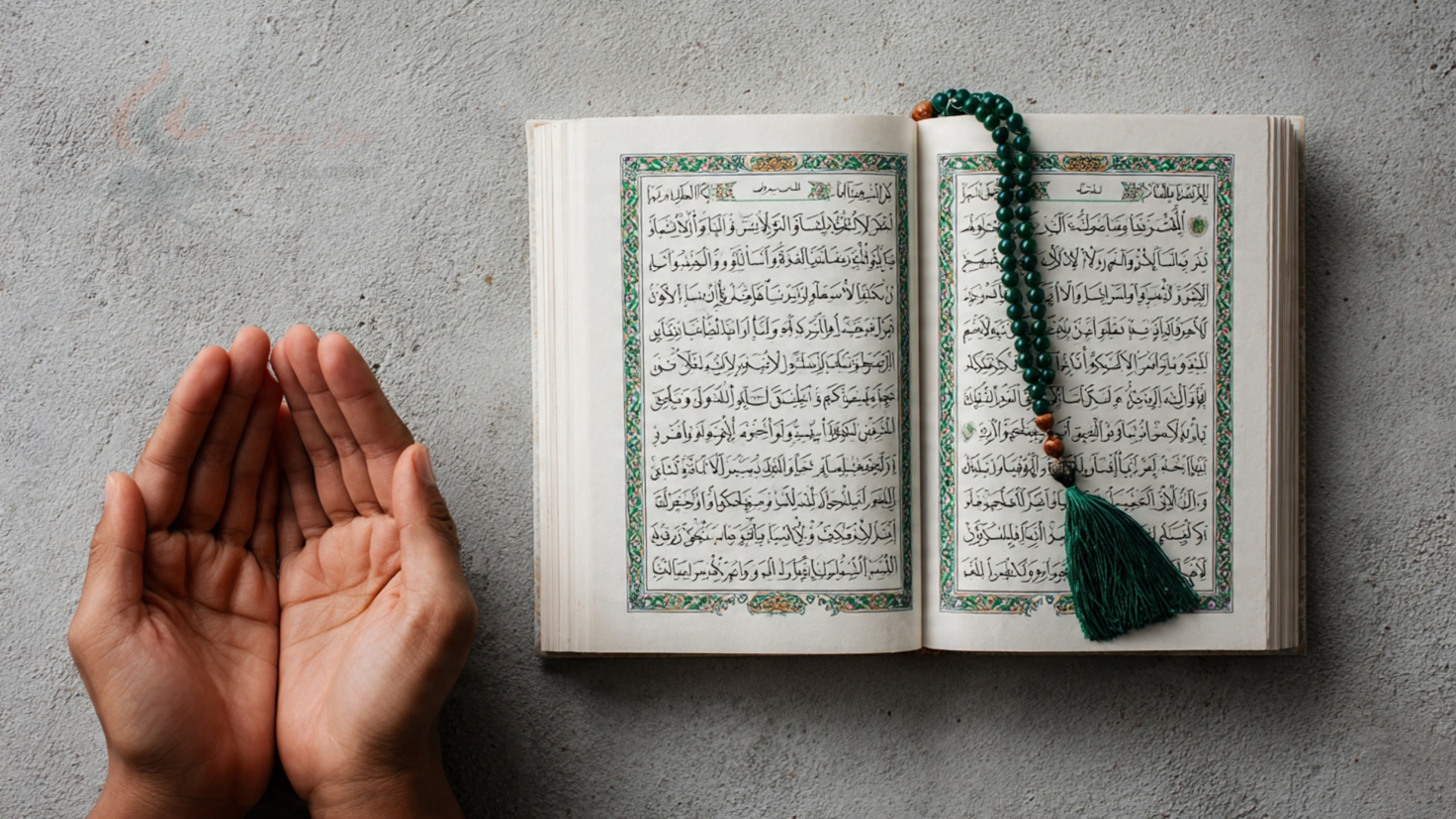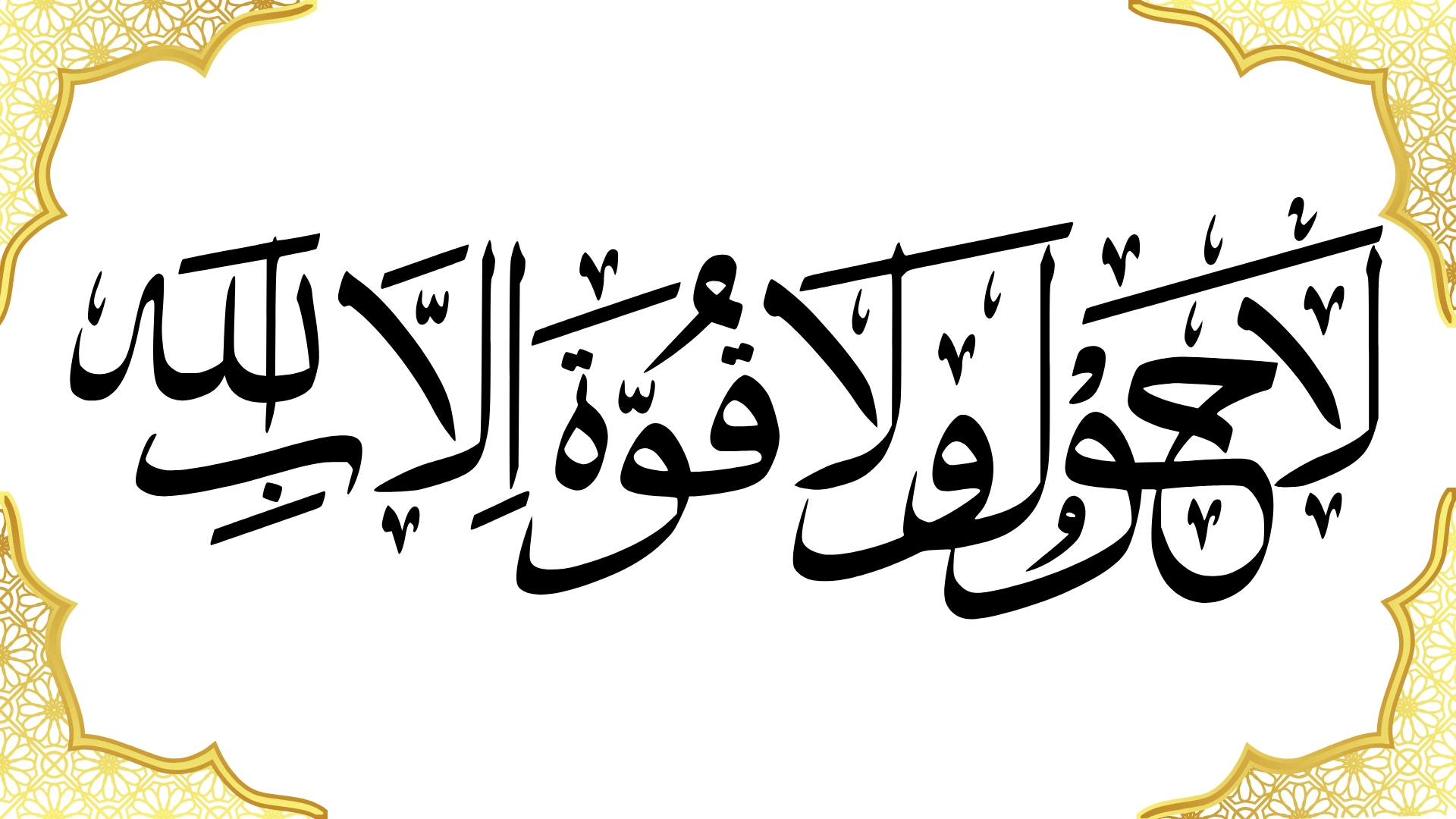The impact of words is high when we mourn the loss of someone. Islam also provides comfort to its believers with helpful statements and prayers at times of pain and loss. They bring people information, peace of mind, and activities based on faith. This kind of action consoles grieving people and also brings people in the community closer together.
Research on Islamic condolences points out how they suggest calmness and patience. Rōqā’ queesterfōl que leaders same that using expressions like “Inna lillahi wa inna ilayhi raji’un” gives both peace to the mind and heart. Expressing trust in God also relieves the impact of losing, giving comfort, deterred by faith.
The religion of Islam tells us that loss should help us understand that life is fleeting. Therefore, the kindness shown, caring words and gentle prayers for the deceased foster solidarity and kindness. By undertaking these small acts, we also celebrate the grief of others and help guide them with our shared belief in God’s guidance in eQuranzone.com.
First Thing to Say After Someone’s Death
When someone passes away, the first words to utter are:
“Inna lillahi wa inna ilayhi raji’un”
إِنَّا لِلّهِ وَإِنَّا إِلَيْهِ رَاجِعونَ
(Indeed, we belong to Allah, and indeed, to Him, we return.)
This phrase, taken from the Qur’an (2:156), reminds us of the temporary nature of life. It reinforces submission to Allah’s will and helps us accept the loss. Saying these words provides reassurance and strengthens faith during such difficult moments.
The verse itself declares,
“الَّذِينَ إِذَا أَصَابَتْهُمْ مُّصِيبَةٌ قَالُوا إِنَّا لِلَّهِ وَإِنَّا إِلَيْهِ رَاجِعُونَ”
“Who, when disaster strikes them, say, ‘Indeed we belong to Allah, and indeed to Him, we will return.'” [Qur’an 2:156]
These words can be calmly shared by anyone, ensuring that themselves and others with them remain connected to faith during grief.

Dua After Someone’s Death
After saying the initial words, Muslims are also encouraged to pray (make dua) for the deceased. These supplications ask for forgiveness, mercy, and a peaceful afterlife. One important dua to recite for the deceased is:
“Allahumma-ghfir lahu/ha, warhamhu/ha wa’ ‘wa’afihi/ha, wa’fu ‘anhu/ha.”
اللَّهُمَّ اغْفِرْ لَهُ/لَهَا، وَارْحَمْهُ/هَا، وَعَافِهِ/هَا، وَاعْفُ عَنْهُ/هَا
(O Allah, forgive him/her, have mercy upon him/her, pardon him/her, and protect him/her.)
This dua is a compassionate way of seeking blessings for the deceased’s soul. It reflects care for the individual and hope for their life in the hereafter. Furthermore, Islam teaches that offering prayers for the deceased also benefits the person making the dua, ensuring mutual blessings.
The Prophet Muhammad (peace be upon him) said,
“مَنْ صَلَّى عَلَى جَنَازَةٍ فَلَهُ قِيرَاطٌ، وَمَنْ شَهِدَهَا حَتَّى تُدْفَنَ فَلَهُ قِيرَاطَانِ”
“Whoever performs the funeral prayer receives a reward equal to one Qirat, and whoever stays until burial receives two Qirats, each like the size of Mount Uhud.”
Offering Condolences to the Grieving
When speaking to someone who has lost a loved one, it is vital to choose words that soothe and offer peace. A comforting saying from the Prophet Muhammad (peace be upon him) is:
“إِنَّ لِلَّهِ مَا أَخَذَ وَلَهُ مَا أَعْطَى وَكُلُّ شَيْءٍ عِنْدَهُ بِأَجَلٍ مُسَمًّى فَلْتَصْبِرْ وَلْتَحْتَسِبْ”
“To Allah belongs what He takes, and to Him belongs what He gives. Everything has an appointed term. Be patient and seek reward from Allah.”
These words emphasize patience and trust in Allah while acknowledging the temporary nature of this worldly life. It reassures the grieving person that rewards are promised for their endurance.
Another compassionate phrase is,
“أَحْتَسِبُ العَزَاء عِندَ اللَّهِ”
“May Allah reward your patience and accept the loss as a reason for blessings for you.”
Dua During the Janazah Prayer
During the funeral prayer, Muslims collectively pray for the deceased. Among the duas recited is:
“اللَّهُمَّ اغْفِرْ لِحَيِّنَا وَمَيِّتِنَا وَشَاهِدِنَا وَغَائِبِنَا وَذَكَرِنَا وَأُنْثَانَا وَصَغِيرِنَا وَكَبِيرِنَا”
“O Allah, forgive our living and deceased, present and absent, young and old, men and women.”
The communal nature of this prayer fosters unity within the Muslim community. It reminds everyone that life is a shared experience, and prayer connects the living and the deceased. Additionally, attending Janazah prayers holds great rewards.
The Prophet Muhammad (peace be upon him) stated,
“مَنْ شَهِدَ جَنَازَةً وَدَعَا لِأَخِيهِ، فَإِنَّ اللَّهَ يُعْطِيهِ الْأَجْرَ وَالرَّحْمَةَ”
“Whoever attends a Janazah and prays for their brother earns blessings and mercy from Allah.”
Visiting the Graveyard
Visiting graves is an act of both respect and reflection in Islam. The following dua is commonly recited when visiting graves:
“السَّلَامُ عَلَيْكُمْ أَهْلَ الدِّيَارِ مِنَ الْمُؤْمِنِينَ وَالْمُسْلِمِينَ، وَإِنَّا إِنْ شَاءَ اللَّهُ بِكُمْ لاحِقُونَ”
“Peace be upon you, O inhabitants of these abodes, believers and Muslims. Indeed, we will follow you, if Allah wills.”
This greeting honors the deceased and reminds visitors of the reality of death. Graves provide a space for prayer and reflection, encouraging humility and mindfulness of the hereafter.
The Prophet Muhammad (peace be upon him) said,
“زُورُوا الْقُبُورَ فَإِنَّهَا تُذَكِّرُكُمُ الْآخِرَةَ”
“Visit graves, for they remind you of the afterlife.”
Giving Charity on Behalf of the Deceased
Another meaningful way to honor a deceased loved one is through charity. Giving in their name ensures ongoing blessings (sadaqah jariyah) for them. Examples include:
- Donating to build wells in underprivileged communities
- Supporting the construction of mosques or schools
- Distributing Qur’ans or other beneficial knowledge sources
The Prophet Muhammad (peace be upon him) taught,
“إِذَا مَاتَ الْإِنْسَانُ انْقَطَعَ عَمَلُهُ إلَّا مِنْ ثَلَاثَةٍ”
“When a person dies, all their deeds end except three things: an ongoing charity, knowledge that benefits others, or a righteous child who prays for them.”
Expressing Sympathy with Respect
Extending Islamic condolences within the Muslim community is a way to show your deep sympathy while honoring the beliefs of the deceased and their family. While grief is universal, Islamic customs add specific nuances to the process of offering condolences to a Muslim family.
What Happens After Death in Islam?
When a Muslim dies, their body is given great respect. The immediate steps include:
- Performing a ritual washing (ghusl) of the body
- Shrouding the body in white cloth (kafan)
- Carrying out Janazah prayers
- Burying the body in alignment with Islamic practices
The deceased is laid with their head facing the qiblah. Traditional burials follow minimalism, reflecting the simplicity advocated in Islam.
How to Share Islamic Condolence Messages
Condolences can be conveyed in various ways, including:
- Visiting the family during the mourning period
- Calling them if personal visits are not possible
- Sending a written note with words of comfort
When using written platforms or texts, ensure respectful messages that honor the deceased and comfort the bereaved.
Food as a Token of Support
Providing food or meals to the family of the deceased is a common practice. It lightens their burden and is an act of kindness. Meals can range from snacks like dates to complete dishes. Make sure the food is halal to align with Islamic dietary laws.
This gesture not only supports the grieving household but also earns rewards from Allah. The Prophet Muhammad (peace be upon him) said,
“أَطْعِمُوا آلَ الْمَيِّتِ الطَّعَامَ”
“Provide food for the family of the deceased.”
Dressing Modestly for an Islamic Funeral
Attendees of an Islamic funeral should wear modest clothing. Men often wear simple, loose-fitting attire, while women cover their hair and body as per Islamic teachings. Dressing modestly demonstrates respect for the solemnity of the occasion and aligns with religious principles.
Additional Ways to Offer Support
Beyond immediate condolences, ongoing support matters. Post-burial practices include:
- Checking in with the bereaved regularly
- Offering practical help like babysitting, shopping, or household tasks
Grief doesn’t follow a strict timeline. Continued efforts to provide emotional and physical support can greatly help the mourning process.
The Best Words to Say When Offering Condolences
- “إِنَّا لِلَّهِ وَإِنَّا إِلَيْهِ رَاجِعُونَ”
“Surely we belong to Allah and to Him shall we return.” - “غَفَرَ اللَّهُ لِلْمَيِّتِ وَرَفَعَ دَرَجَاتِهِ فِي الجَنَّةِ”
“May Allah forgive the deceased and elevate their rank in paradise.” - “صَبَرَ اللَّهُ قَلْبَكُمْ وَجَزَاكُمْ خَيْرًا”
“May Allah grant you patience and bless you for your endurance.”
These simple yet meaningful words provide comfort while affirming shared faith in Allah’s mercy and justice.
| Topic | Key Points | Arabic Text |
| First Thing to Say After Death | Say: “Inna lillahi wa inna ilayhi raji’un” (Indeed, we belong to Allah, and indeed, to Him, we return). | إِنَّا لِلّهِ وَإِنَّا إِلَيْهِ رَاجِعونَ |
| Dua After Someone’s Death | Recite: “Allahumma-ghfir lahu/ha, warhamhu/ha wa ‘afihi/ha, wa’fu ‘anhu/ha” (O Allah, forgive him/her, have mercy upon him/her, pardon him/her, and protect him/her). | اللَّهُمَّ اغْفِرْ لَهُ/لَهَا، وَارْحَمْهُ/هَا، وَعَافِهِ/هَا، وَاعْفُ عَنْهُ/هَا |
| Offering Condolences | Say: “To Allah belongs what He takes, and to Him belongs what He gives. Everything has an appointed term. Be patient and seek reward from Allah.” | إِنَّ لِلَّهِ مَا أَخَذَ وَلَهُ مَا أَعْطَى وَكُلُّ شَيْءٍ عِنْدَهُ بِأَجَلٍ مُسَمًّى فَلْتَصْبِرْ وَلْتَحْتَسِبْ |
| Dua During Janazah Prayer | Recite: “Allahumma-ghfir li-hayyina wa mayyitina wa shahidina wa gha’ibina wa dhakarina wa unthana wa sagheerina wa kabeerina” (O Allah, forgive our living and deceased, present and absent, young and old, men and women). | اللَّهُمَّ اغْفِرْ لِحَيِّنَا وَمَيِّتِنَا وَشَاهِدِنَا وَغَائِبِنَا وَذَكَرِنَا وَأُنْثَانَا وَصَغِيرِنَا وَكَبِيرِنَا |
| Visiting the Graveyard | Say: “Peace be upon you, O inhabitants of these abodes, believers and Muslims. Indeed, we will follow you, if Allah wills.” | السَّلَامُ عَلَيْكُمْ أَهْلَ الدِّيَارِ مِنَ الْمُؤْمِنِينَ وَالْمُسْلِمِينَ، وَإِنَّا إِنْ شَاءَ اللَّهُ بِكُمْ لاحِقُونَ |
| Charity for the Deceased | Perform acts of charity like building wells, supporting mosques, or distributing Qur’ans in the name of the deceased. | “إِذَا مَاتَ الْإِنْسَانُ انْقَطَعَ عَمَلُهُ إلَّا مِنْ ثَلَاثَةٍ” (When a person dies, all their deeds end except three things: ongoing charity, beneficial knowledge, or a righteous child who prays for them). |
| Food as Support | Provide halal food to the grieving family to ease their burden. | “أَطْعِمُوا آلَ الْمَيِّتِ الطَّعَامَ” (Provide food for the family of the deceased). |
| Best Words for Condolences | Examples: “May Allah forgive the deceased and elevate their rank in paradise.” “May Allah grant you patience and bless you for your endurance.” | “إِنَّا لِلَّهِ وَإِنَّا إِلَيْهِ رَاجِعُونَ” (Surely we belong to Allah and to Him shall we return) |
Conclusion
Islam provides a beautiful framework to approach the sorrow of death. From offering heartfelt condolences to praying for the deceased, every action we take holds spiritual significance. These teachings remind us that grief, while painful, is a part of life’s temporary nature. By showing compassion, kindness, and faith during loss, we create a supportive community that mirrors Islamic values.
May Allah grant strength to those grieving, bestow mercy upon the departed, and guide us all toward a greater understanding of His wisdom.




